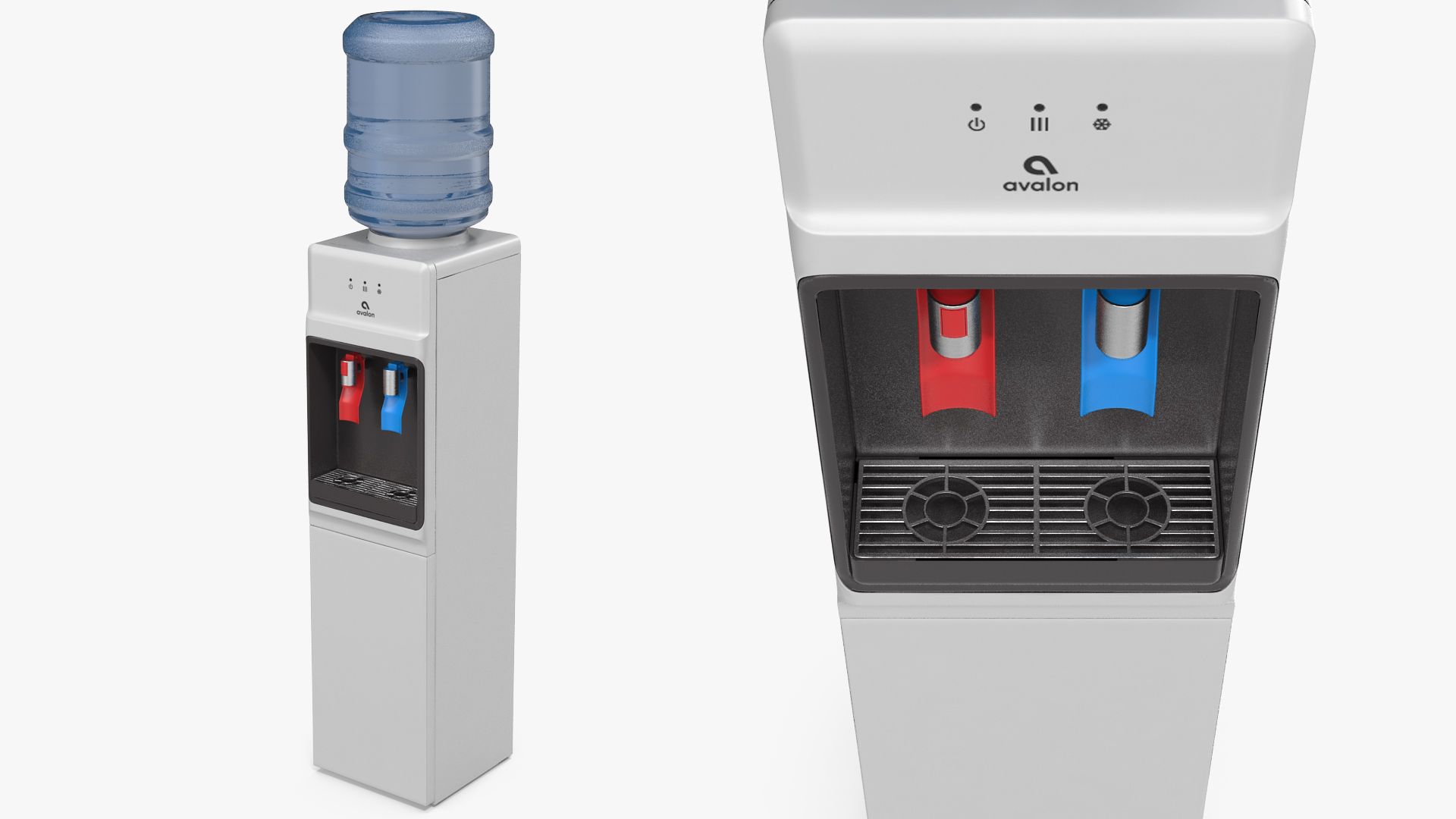A water cooler is a device that provides easy access to chilled drinking water, making it a common feature in offices, schools, gyms, and homes. With various designs and functionalities, water coolers ensure that fresh, cold water is always available. In this article, we will explore what a water cooler is, its components, how it works, and its common uses, providing practical examples along the way.
What is a water cooler?
A water cooler is an appliance designed to dispense cold water, often offering the option to dispense hot water as well. It typically uses electricity to cool the water, although some models also have the ability to heat water for beverages like tea and coffee. Water coolers come in various types, including bottled, bottleless (point-of-use), and countertop models, each catering to different needs and environments.
Components of a water cooler
Water coolers consist of several key components that work together to provide chilled and, in some cases, heated water. These components include:
- Reservoir: The reservoir is where the water is stored before it is dispensed. In bottled water coolers, this is where the water from the bottle is collected, while in bottleless models, it is directly connected to the water supply.
- Cooling system: The cooling system usually consists of a compressor, condenser, evaporator, and refrigerant. This system cools the water by removing heat and dissipating it through the condenser coils.
- Heating system: In models that offer hot water, a heating element heats the water to the desired temperature. This system is often controlled by a thermostat to ensure consistent water temperature.
- Dispensing mechanism: The dispensing mechanism includes faucets or taps that allow users to draw water from the cooler. Some advanced models have touchless sensors or buttons for hygienic water dispensing.
- Drip tray: The drip tray catches any spills or drips from the dispensing mechanism, keeping the area around the cooler clean and dry.
- Filters: Bottleless water coolers often include water filters to remove impurities and ensure the water is clean and safe to drink. Common types of filters used include carbon filters and reverse osmosis systems.
Functionality of a water cooler
The functionality of a water cooler can vary depending on its type, but the basic operation involves cooling and dispensing water. Here’s a detailed look at how water coolers work:
- Cooling process: In a typical water cooler, water enters the reservoir from the bottle or the connected water supply. The cooling system, using a compressor and refrigerant, chills the water by absorbing heat and expelling it through the condenser coils. This process ensures that the water remains at a refreshing, cool temperature.
- Heating process: For models with heating capabilities, the heating element warms the water stored in a separate reservoir. The thermostat maintains the water at a specific temperature, ready for dispensing when needed.
- Dispensing water: Users can draw cold or hot water by pressing the appropriate faucet, button, or sensor. The water flows from the reservoir through the dispensing mechanism and into the user’s cup or bottle.
- Filtration: In bottleless models, the incoming water passes through filters before reaching the reservoir. These filters remove contaminants, chlorine, and other impurities, ensuring the water is clean and tastes good.

Common uses of water coolers
Water coolers are versatile appliances used in various settings for different purposes. Here are some common uses with practical examples:
- Offices: In office environments, water coolers provide employees with easy access to chilled water, encouraging hydration throughout the workday. For example, a bottleless water cooler connected to the office’s water supply can continuously provide filtered, cold water without the need for regular bottle replacements.
- Schools: Schools often have water coolers in hallways and cafeterias, offering students a convenient way to stay hydrated during the day. A bottled water cooler in a school cafeteria ensures that students have access to clean, cold water during lunch breaks.
- Gyms and fitness centers: Hydration is crucial during workouts, making water coolers essential in gyms and fitness centers. A countertop water cooler in a gym can provide members with quick access to cold water between exercises, helping them stay hydrated and perform better.
- Homes: In residential settings, water coolers can be a practical addition to kitchens or home offices. A compact countertop water cooler in a home office can provide family members with easy access to both cold and hot water for drinks and cooking.
- Public spaces: Parks, airports, and shopping malls often have water coolers installed in rest areas, ensuring visitors have access to refreshing water. For instance, a bottleless water cooler in an airport lounge can serve numerous travelers without the need for constant maintenance.
Benefits of using a water cooler
Using a water cooler offers several benefits, including:
- Convenience: Water coolers provide instant access to cold or hot water, eliminating the need to store bottled water in the fridge or heat water separately.
- Encourages hydration: Easy access to cold water encourages people to drink more water, promoting better health and hydration.
- Cost-effective: Bottleless water coolers can save money over time by reducing the need for bottled water purchases and delivery.
- Environmentally friendly: Using a bottleless water cooler reduces plastic waste associated with disposable water bottles, contributing to environmental conservation.
- Improved water quality: Water coolers with built-in filters improve the taste and quality of tap water, ensuring it is free from impurities and safe to drink.
Conclusion
A water cooler is a valuable appliance for providing easy access to chilled and, in some cases, heated water in various settings. By understanding its components, functionality, and common uses, you can appreciate the convenience and benefits it offers. Whether in an office, school, gym, home, or public space, a water cooler ensures that refreshing, clean water is always available, promoting hydration and overall well-being.
Visit: Water cube.

